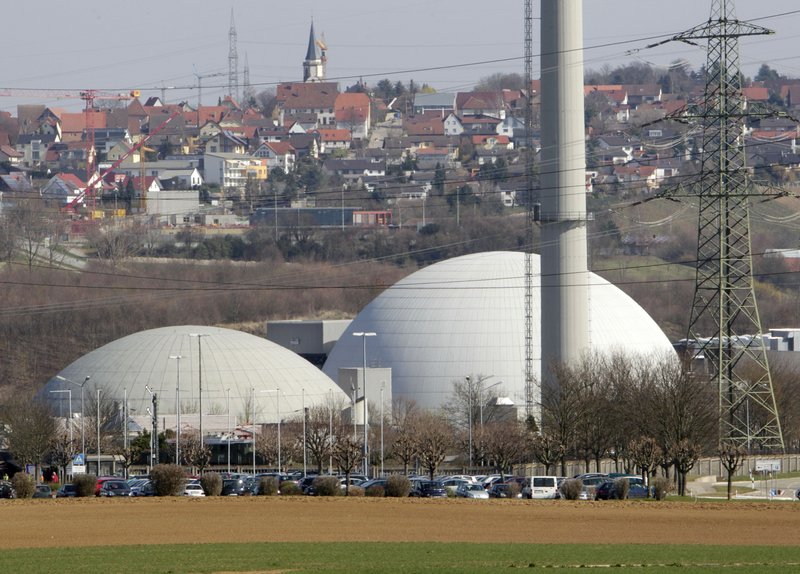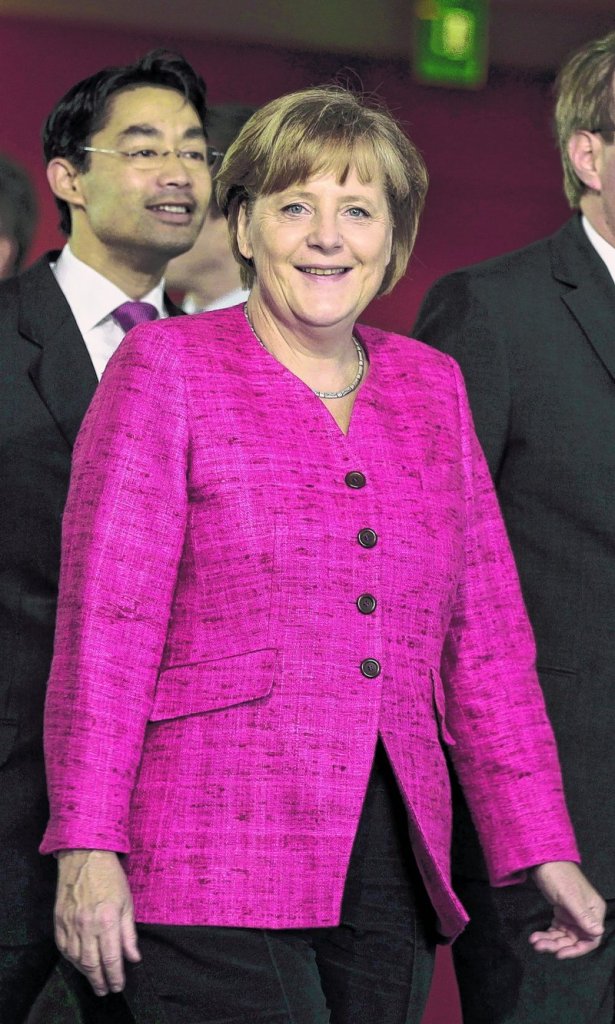BERLIN — Germany announced plans Monday to abandon nuclear energy over the next 11 years, outlining an ambitious strategy in the wake of Japan’s Fukushima disaster to replace atomic power with renewable energy sources.
Chancellor Angela Merkel said she hopes the transformation to more solar, wind and hydroelectric power serves as a roadmap for other countries.
“We believe that we can show those countries who decide to abandon nuclear power – or not to start using it – how it is possible to achieve growth, creating jobs and economic prosperity while shifting the energy supply toward renewable energies,” Merkel said.
Merkel’s government said it will shut down all 17 nuclear power plants in Germany – the world’s fourth-largest economy and Europe’s biggest – by 2022. The government had no immediate estimate of the transition’s overall cost.
The plan sets Germany apart from most of the other major industrialized nations. Among the other Group of Eight countries, only Italy has abandoned nuclear power, which was voted down in a referendum after the 1986 Chernobyl disaster.
The decision represents a remarkable about-face for Merkel’s government, which only late last year pushed through a plan to extend the life span of the country’s reactors, with the last scheduled to go offline around 2036. But Merkel, who holds a Ph.D. in physics, said industrialized, technologically advanced Japan’s “helplessness” in the face of the Fukushima disaster made her rethink the technology’s risks.
Phasing out nuclear power within a decade will be a challenge, but it will be feasible and ultimately give Germany a competitive advantage in the renewable energy era, Merkel said.
Germany’s seven oldest reactors, already taken off the grid pending safety inspections after the March catastrophe at Japan’s Fukushima Dai-ichi nuclear plant, will remain offline permanently, Merkel said. The plants accounted for about 40 percent of the country’s nuclear power capacity.
At the time of the Japanese disaster, Germany got just under a quarter of its electricity from nuclear power, about the same share as in the United States.
While Germany already was set to abandon nuclear energy eventually, the decision – which still requires parliamentary approval – dramatically speeds up that process.
Send questions/comments to the editors.




Success. Please wait for the page to reload. If the page does not reload within 5 seconds, please refresh the page.
Enter your email and password to access comments.
Hi, to comment on stories you must . This profile is in addition to your subscription and website login.
Already have a commenting profile? .
Invalid username/password.
Please check your email to confirm and complete your registration.
Only subscribers are eligible to post comments. Please subscribe or login first for digital access. Here’s why.
Use the form below to reset your password. When you've submitted your account email, we will send an email with a reset code.